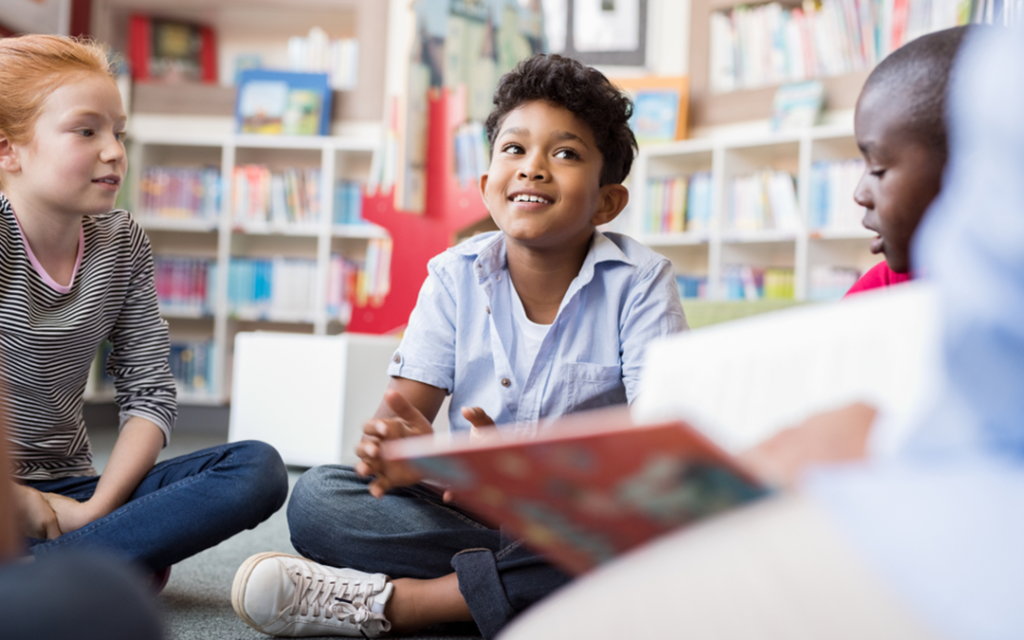
“If conflict is a normal, natural part of life, it’s really important to look at how we deal with it.”
– Ann McKnight
This final post in our “Kindness in the Classroom” series culminates with a brief look at how teachers can facilitate kind and effective conflict resolution between students in the classroom. Previously we discussed the need for teachers to begin by cultivating kindness towards themselves, and how teachers can facilitate student-to-student kindness in daily interactions. But no discussion about classroom kindness is complete without covering conflict resolution, because nothing communicates how someone truly values another person more profoundly than their response in a time of conflict. Conflict can be a powerful opportunity to strengthen relationships.
When students do not know how to constructively process conflict—awkwardness, frustration, and anxiety can increase over time—and the rift between offended parties can grow quickly. Additionally, the social isolation fallout from the COVID-impacted school years has amplified students’ challenge to resolve basic conflicts before they get blown out of proportion.
Below are five steps teachers can take to help students resolve conflict in a way that builds and strengthens relationships and keeps kindness the standard in the classroom. While teachers are not expected to be the primary mediators of major student conflicts, discord is still a “normal, natural part of life” in the classroom. In conjunction with the resources found in the first two parts of this series, these steps can help facilitate constructive conflict resolution.
- Set up a time when students in conflict are willing to talk constructively. Let them establish and agree upon guidelines of kind and honest engagement with each other in advance, and require each to verbally confirm their willingness to honor the guidelines again before the discussion begins.
- Help students ask each other good questions. Good questions can stimulate curiosity about one another. Curiosity communicates that the other person is worth the effort to understand. In the TEDx talk “How To Talk to Your Dad,” Madeline Poultridge shares three powerful questions to ask each other to get to the heart of most basic conflicts:
- What is your greatest concern?
- What do you most want to see happen?
- What do you most want the other person to understand?
- Facilitate active listening. After one student answers the first question, the student who was listening needs to repeat back what they heard to confirm that they understood fully: “So, what I hear you saying is…”. If what was repeated back is incomplete or inaccurate, the first student can now say, “This part was accurate, but this part is not quite right. This is what I actually said…” This process should continue until the listener is able to convey back what the speaker was trying to say, and the speaker confirms, “Yes, that is what I said.” Then the roles are reversed, so both parties have the opportunity to share what is most important to them, and they both know what the other wants to see happen. Ann McKnight calls this “listening to the person behind the words.”
- Find common interests. What do both sides agree that they want in the outcome? Can you help them find solutions that truly honor what is most important to them?
- Widen the circle if necessary. Sometimes, a formal restorative circle process may be necessary to keep everyone feeling safe and accountable to a universal standard of behavior.
Teachers can play a significant role in facilitating constructive conflict resolution between students, which not only strengthens relationships but also teaches valuable life skills. By setting up guidelines for constructive communication, asking good questions, facilitating active listening, finding common interests, and widening the circle when necessary—teachers can create a culture of kindness and empathy in the classroom, teaching students valuable life skills that will serve them well beyond their time in school.
About TLC
The Lincoln Center for Family and Youth (TLC) is a social enterprise company serving the Greater Philadelphia Area. Among its five divisions, TLC offers School-based Staffing Solutions, Mobile Coaching and Counseling, and Heather’s Hope: A Center for Victims of Crime. These major programs are united under TLC’s mission to promote positive choices and cultivate meaningful connections through education, counseling, coaching, and consulting.
About the Author
MaryJo Burchard (Ph.D. in Organizational Leadership) is co-founder and principal of Concord Solutions, a Virginia-based consultancy firm focused on helping leaders and organizations thrive while facing major disruption. Concord Solutions offers consulting, coaching, training, research, and keynote speaking surrounding trauma-informed leadership and assessing and building change readiness, trust, and belonging.
